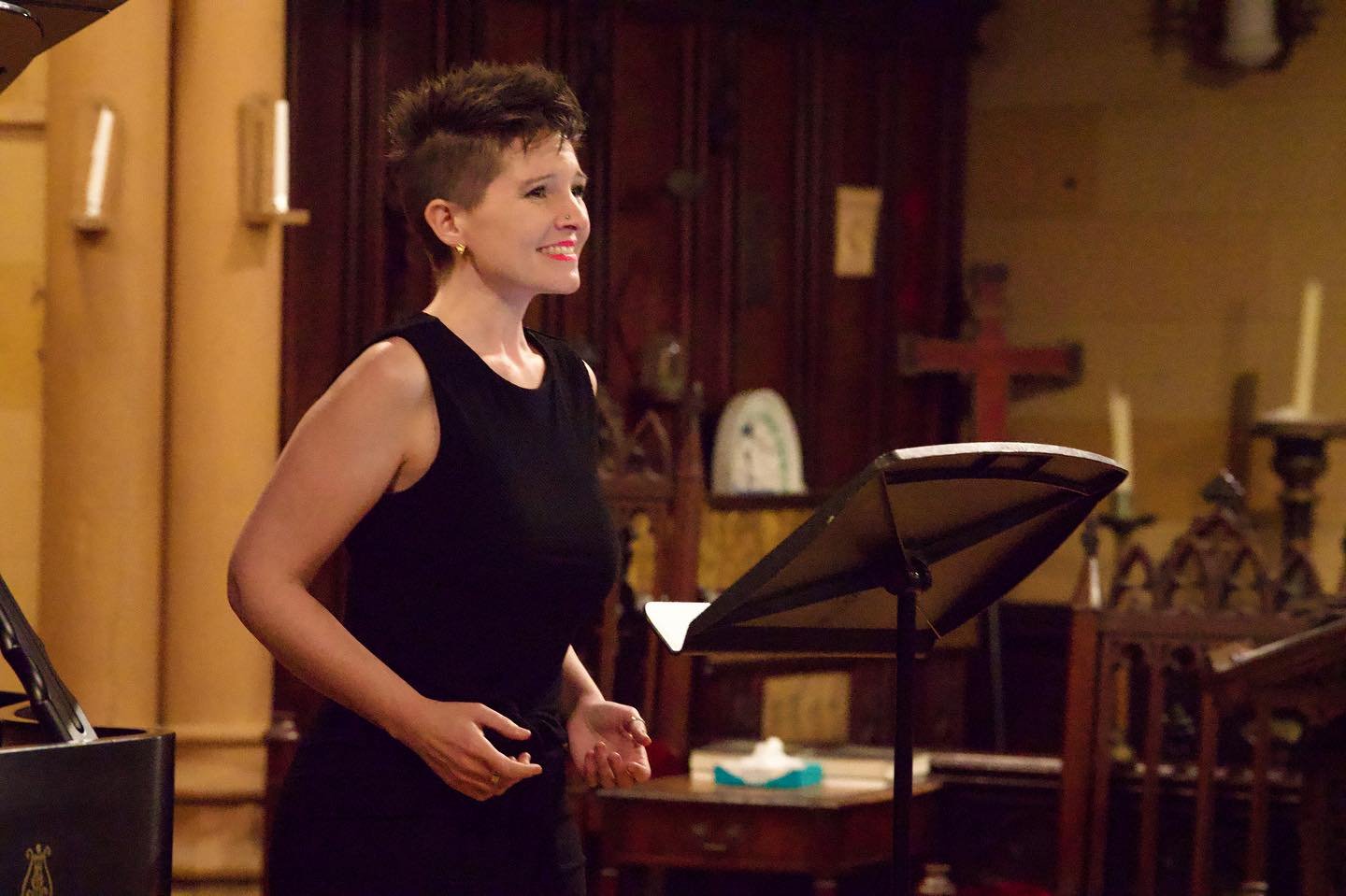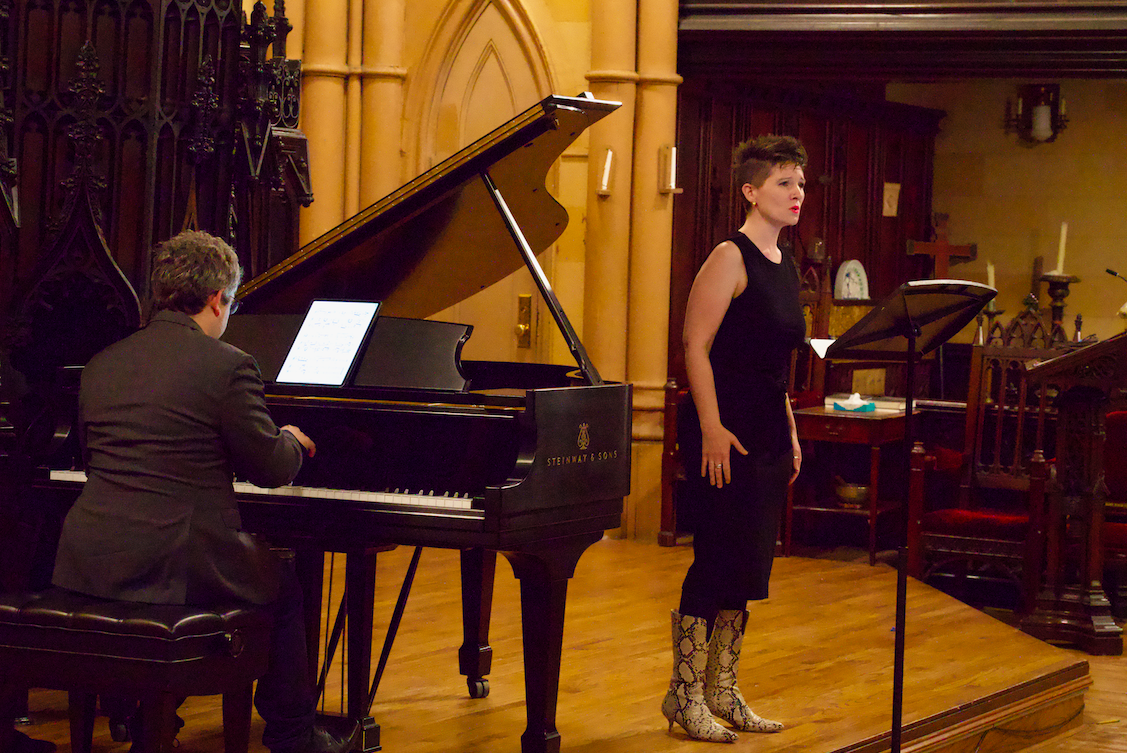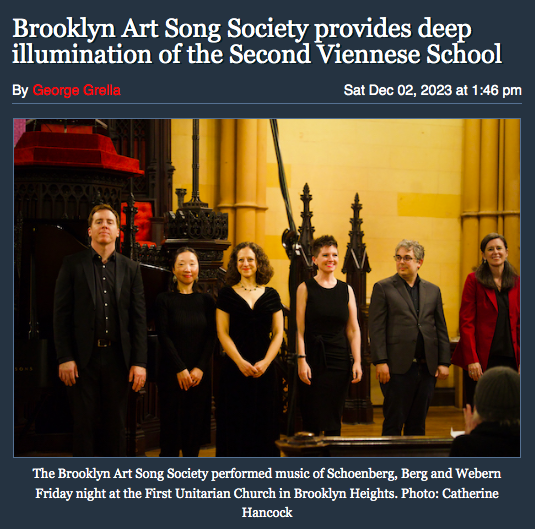It was awesome returning to Brooklyn Art Song Society to sing Webern’s Opus 25 as a part of a concert of music from the Second Viennese School.
“Finnegan, accompanied by pianist Michael Brofman, set the standard for the singing, with excellent intonation and articulation, and a palpable sense of expression and meaning. ”
“Finnegan’s light timbre and trilling vibrato was the right sound for the Webern songs. ”
“Soprano Maggie Finnegan revealed her vocal prowess during the opening phrase of No.1 “Wie bin ich froh!” as she precisely blossomed on ‘froh’ and ‘grün’ through her upper register and sent chills down the spine. Her voice has a pleasant exactness that, instead of pushing listeners, invites them in to enjoy every detail. Finnegan smiled through her eyes in “Wie bin ich froh.” She made Hildegard Jone’s text feel special, especially as she sang “noch einmal bin ich ganz ins Werden hingestellt und bin auf Erden,” “once again I have found myself entirely surrounded by becoming, and am on the earth.”
No.2 “Des Herzens Purpurvogel fliegt durch Nacht” was rich and grounded in Finnegan’s timbre. Her voice mulled over Jone’s text “Doch rastet endlich er am Ast des Todes, müd’ und flügelschwer, dann müssen sie zum letzten Blick verbeben,” “Death, weary and with heavy wings, then they must take their last look around before they dyingly tremble.” One could feel Finnegan’s intent to convey Jone’s message. It was a profound interpretation.
No.3 “Sterne, Ihr silbernen Bienen der Nacht” was full of glitter and sparkle in Finnegan’s voice. She painted a lucid remembering of night’s heavenly bliss through her voice’s warmth and sustainability. There was no separating of any part of the text as Finnegan drew a clear connectivity between the notes. Her voice was like a glossy part of a body of water at night, awaiting to be stirred but never becoming waves.”



